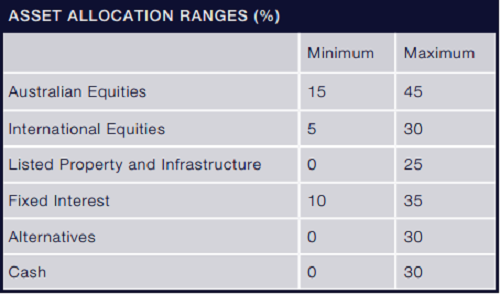What is a Managed Separate Account
Post on: 7 Июль, 2015 No Comment

Managed Separate Accounts
A managed separate account is a type of investment, similar to a mutual fund. that is under the management of a professional investment firm. A portfolio manager is responsible for all of the investment decisions, and rely on various analysts to assist them in making strategic investment decisions. Managed separate accounts are different than mutual funds due to the fact that each investment portfolio is unique to you personal account. For example, if you had a separate account, the money manager has complete discretion to make decisions that may differ from decisions made for other related accounts.
Managed separate accounts vs. Mutual Funds
In this example, let’s say that the portfolio manager invests your money in an equity strategy where your portfolio is made up of 20 individual stocks. Concurrently, they launch an identical mutual fund strategy made up of these exact stock holdings. In the beginning, both portfolios with the same percentage of ownership in the securities. From your point of view, while the holdings in either fund are identical in the beginning, the statements will look different. For the mutual fund client, their holding will show on their statement as a single holding, and does not break down the individual holdings within the account. The mutual fund’s net asset value will be calculated at the end of each day, and a value will be assigned.
The managed separate account. however, will have a listing of the individual stock positions and values separately, and the value of the account will be treated on an individual basis throughout the day as the stocks in your portfolio rise and fall. As time goes on, the mutual fund and separate account portfolios evolve in a different way. The decisions that the mutual fund portfolio manager makes will affect all of the mutual fund holders in the exact same way. On the other hand, the separate account decisions are actually made for each individual holder and will vary from account holder to account holder.
Individual Portfolio Customization
When it comes to individual taxable accounts especially, managed separate account holders have a unique advantage. Mutual funds act as a single bucket, with no regard to the individual situations of each investor. However, with managed accounts, investors are treated differently dependent on their individual situation, and they have the ability to do things that you cannot do in a mutual fund like harvesting losses at the end of the year, avoiding particular industries, and avoiding many of the operating expenses that are built into mutual funds.

Account Minimums to participate in a separate account
As previously mentioned, managed separate accounts have an advantage over mutual funds in that you are not lumped into a pool of investors that are sharing expenses. However, these accounts are not available to any investor like mutual funds, as you do have to have a minimum amount of money in order to have access to these types of accounts. As a general rule of thumb, you have to have at least $100,000 to invest in order to participate in a separate account.
Fee Structure differences between mutual funds and separate managed accounts
Mutual fund fees are simple and relatively uncomplicated. Their charge is known as a net expense ratio, that includes the management fee, trading costs, and a charge called a 12(b)1 fee for most types of funds. Many funds also have different types of sales charges, and the differences can be found by reading this article about the different types of mutual fund sales expenses .
Managed Separate accounts are much more cut and dry when it comes to expenses. Usually the fund manager and your advisor agree on a fee that is charged as a percentage of your assets under management. Most separate account fees range between 1.5-2.8%, and are charged on a quarterly basis. There are no other built in fees, so separate accounts usually provide more of a value since they are a bit cheaper than most mutual funds.














